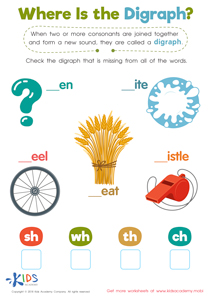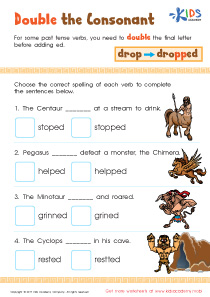Normal Beginning Consonants Worksheets for Ages 6-7
9 filtered results
-
From - To
Our "Normal Beginning Consonants Worksheets for Ages 6-7" are designed to help young learners strengthen their foundational reading skills. These engaging and educational worksheets focus on the introduction and practice of beginning consonant sounds, essential for early literacy development. Each worksheet provides fun activities that encourage children to identify and differentiate consonant sounds, enhancing their phonemic awareness. Suitable for both classroom use and at-home practice, these worksheets support auditory discrimination and visual recognition, ensuring your child builds a strong phonics base. Foster confidence and literacy success with our expertly crafted beginning consonants worksheets.


Vowel and Consonant Sounds: Assessment Worksheet
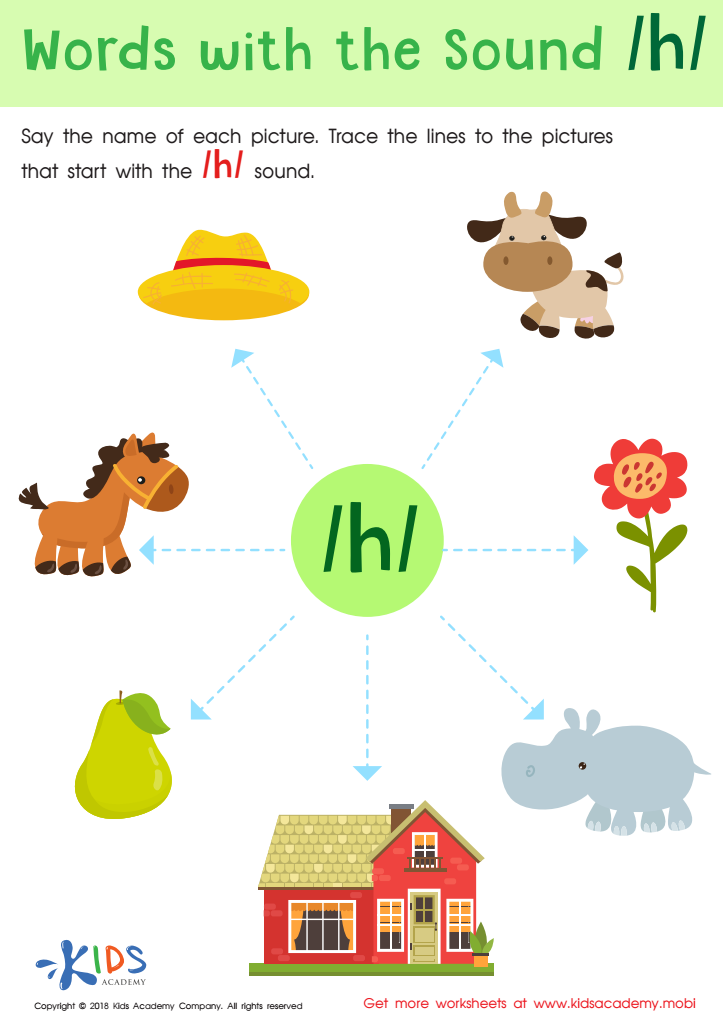

Words with sound h Reading Worksheet


Twin Onset Worksheet
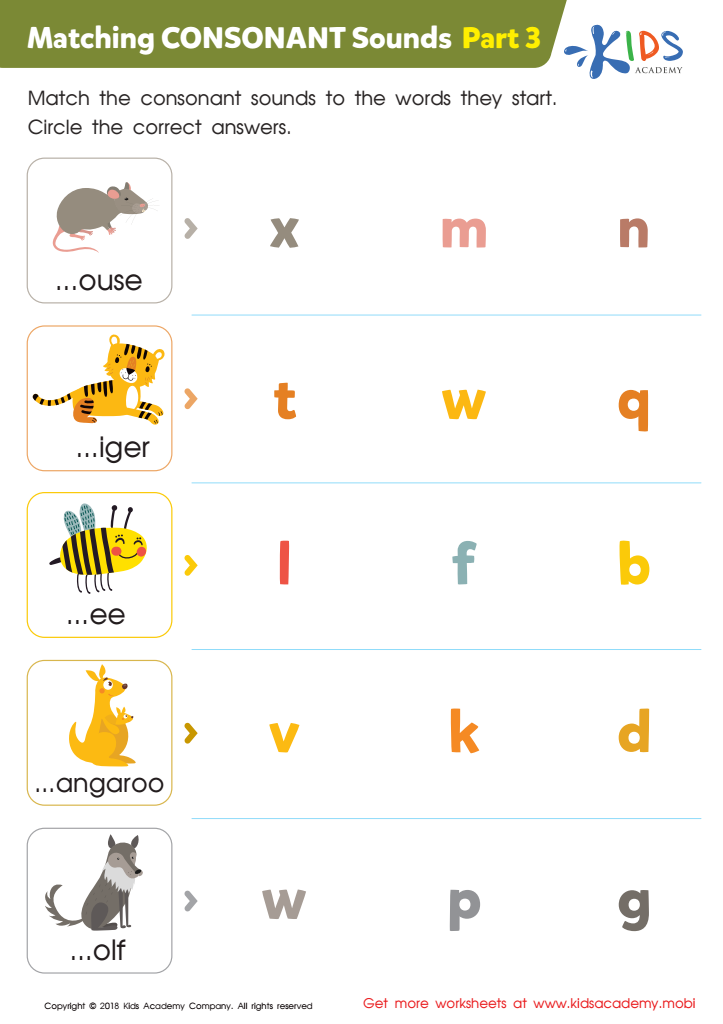

Matching Consonant Sounds: Part 3 Worksheet


Words with sound p Reading Worksheet
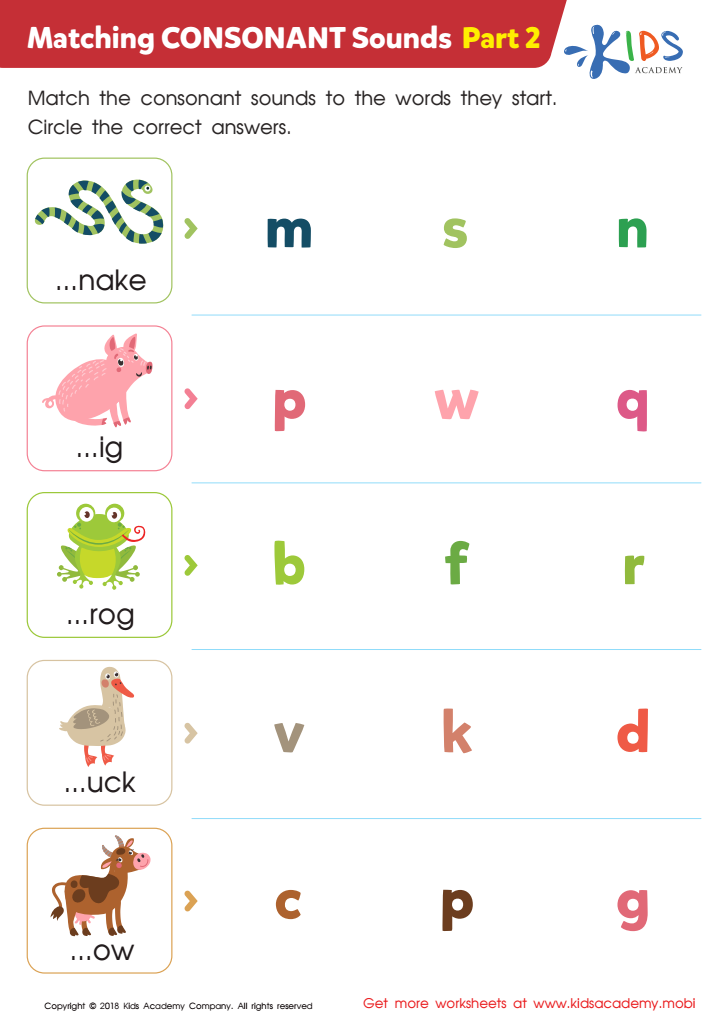

Matching Consonant Sounds: Part 2 Worksheet


Words with sound f Reading Worksheet
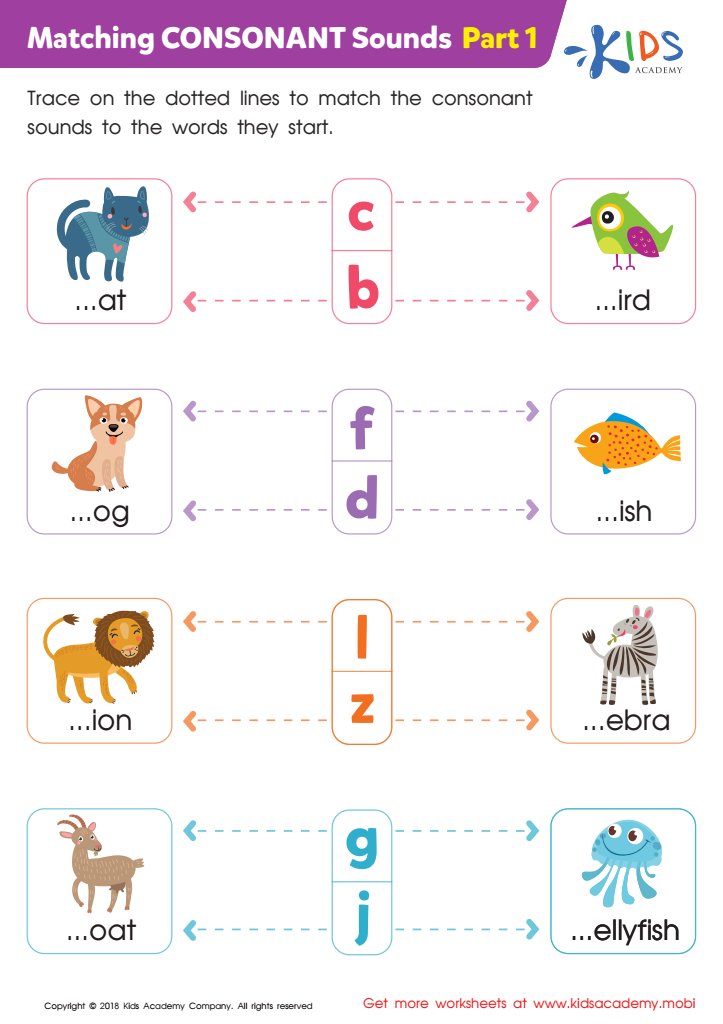

Matching Consonant Sounds: Part 1 Worksheet
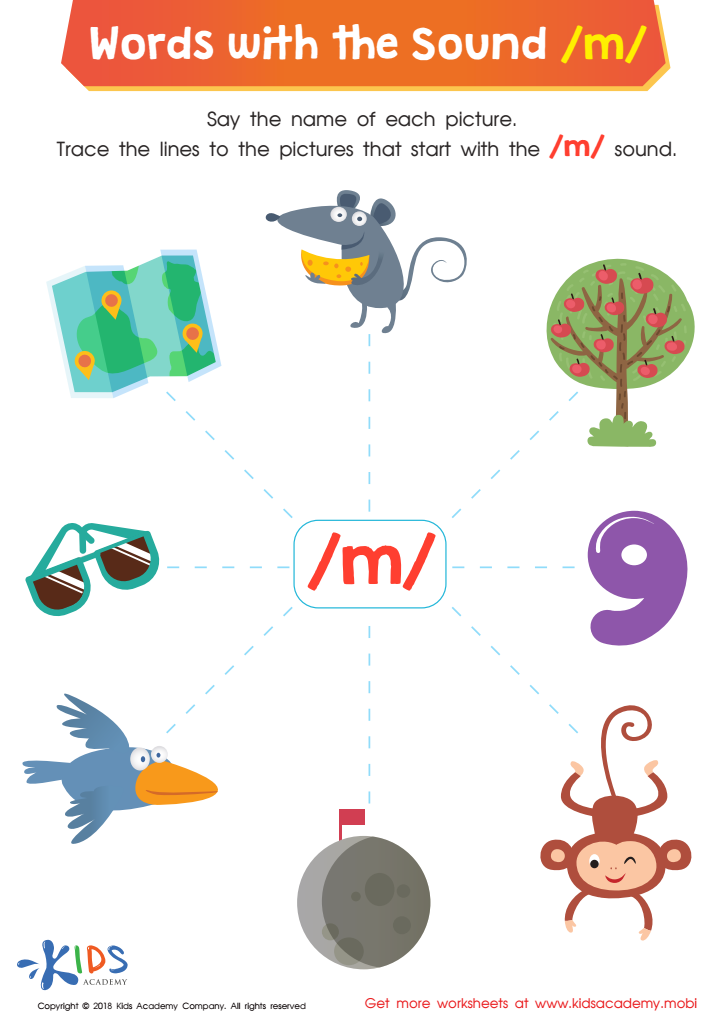

Words with Sound M Reading Worksheet
Understanding and caring about normal beginning consonants for ages 6-7 is crucial for parents and teachers because these early phonetic skills serve as foundational building blocks for literacy. At this age, children are typically transitioning from recognizing letters to decoding words. Mastery of beginning consonants helps kids identify and pronounce the initial sounds in words, facilitating easier and more accurate reading.
Firstly, recognizing and correctly pronouncing beginning consonants boost phonemic awareness, a critical pre-reading skill. It helps children differentiate between individual sounds, enhancing their ability to decode new words as they advance in reading. Strong phonemic awareness also underpins spelling capabilities; children start understanding the predictable patterns of sound-letter relationships.
Secondly, early competence with beginning consonants increases children's confidence in reading. When kids can efficiently identify sounds, they feel more capable and enthusiastic about tackling new words and texts, fostering a positive attitude toward learning.
Lastly, teachers can use children's proficiency with consonant sounds to guide targeted instruction, identifying and addressing any possible learning difficulties early on. This preemptive approach ensures that children receive the necessary support to keep pace with literacy milestones.
In essence, paying attention to the development of beginning consonants equips children with crucial literacy tools, shaping their overall academic trajectory and fostering a lifelong love of reading.
 Assign to My Students
Assign to My Students


